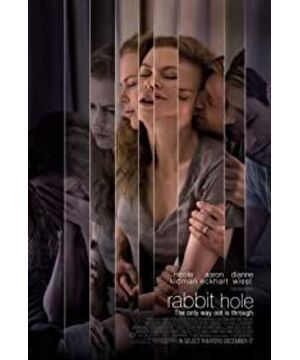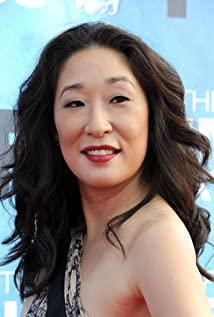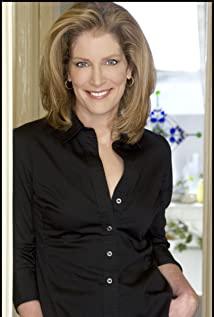As a parent, this film seems to be very strenuous to be honest, because on the one hand I feel the pain of their bereavement, and on the other hand, I "cannot control the urge to strip the man aaron eckhart" (a comment from a film critic).
Nicole's role is complicated. Just like a poster, the broken mirror reflects the faces of different angles and different depths. This film is not a celebration of pure American family concepts and values, but a little more.
You see how bourgeois their lives are. A house in the suburbs, a dog, a child, two cars. The woman quit her job as a husband and teaches her son at home. She is a good cook. Men go to the gym regularly. They have different outfits for different occasions. They even have to deal with the bereavement. Pain, joined the psychotherapy team. This lady and gentleman, do you dare to be more middle-class?
I guess Nicole’s character wants to escape, escape this bourgeois prudential charm, escape this sad, suave, elegant, mediocre way of dealing with grief, but she doesn’t even know what she wants to escape. . You see, the life of Nicole's character is very middle-class, but I feel that the family she grew up in is not a happy and middle-class family. Her mother is suspected of having a history of alcoholism, her father is a sadistic bastard, and her younger sister is even more aggressive. Coming over from a bar fight and making troubles, she finally got pregnant when she was unmarried, and was still with a black man who had no future in music. Yes, unhappy family, Nicole’s role, this woman, she successfully jumped out and found a good job, a good husband, a house, a car, a child, which should have been happy, but the child’s death is like opening After Pandora's box-Nicole's character began to question her life: Are these really what she wants? In other words, can she really be proud of this?
There was a scene in which Nicole put on a black professional attire, put on a pearl necklace, and went to Sotherby to visit her former colleague-how energetic the moment she opened the glass door. It's as if everything can be back on track. But it's not the same, all colleagues are gone, and the people who used front-end coffee are now the bosses. He asked her, what about the child? At that moment, her expression suddenly collapsed.
There is no explanation for all these feelings.
The grief of losing a loved one can be resolved by a lot. Normal people usually approach the rest of the family, talk, cry, exercise, or turn to God, just like at the beginning, we saw the father played by aaron eckhart, he is a normal person—that's how he did it. But what about his wife? Nicole’s character mother said it well: she blamed all others for the child’s death. Everyone, that means, except for the boy who killed her son by car.
Normal people, I mean normal people. Generally speaking, for people who have killed their son by car, the reaction is generally "to bankrupt you and to sue you in your pants", not to mention the American people who love litigation; The car accident here is not the boy’s fault, but normal people’s reaction should be that they don’t want to see him, hate him, and blame him. Just like the father played by eckhart.
Nicole is different. She was indifferent, alienated, and rude to all those close to her, but she was tolerant and gentle to the boy.
Why?
I don't understand psychoanalysis, but there is a term in it called empathy, which refers to a complex thing that is similar to love between the patient and the analyst in the process of psychoanalysis and treatment. I guess this kind of thing is a bit like the delicate feelings between Nicole and this boy.
Rude and indifferent to the closest people, and gentle and kind to strangers, in fact, there are many such people around us. Why? I have no answer.
The hysteria of Nicole's role, after several big and fruitless quarrels, forced her husband to almost embark on this path. He went to the psychotherapy group alone, and gradually got acquainted with an Asian mother. Those were very playful scenes. They smoked leaves in the car. She told him that my husband had left without leaving anything. They also lost their children. Participating in psychotherapy has been up to eight years. The first time I heard about it in eight years, aaron said in surprise that I didn't expect it to be that long. Of course you can't think of it, aaron.
Aaron and the Asian mother almost made it.
Nicole drove to meet the boy, while her husband drove to meet the woman. They all lied to each other. The Asian mother stood at the door, looked at Aaron coming out of the car and smiled, calmly and tenderly, and said, "Is my house easy to find?" He stopped, dressed in white, looking at him, behind him was the endless greenery of summer. At that moment, they all knew that this would not work, and it would be useless. So he said, I'm sorry, and then turned and left. She smiled behind him, knowing everything, forgiving everything-you think, eight years, eight years.
On the other side, Nicole saw the boy in a wedding gown, hugging and congratulating his family with the bride at the door, and got in the car and left. She watched this scene, crying heartbreakingly in the car; why? Why did you cry until now? Because she thinks his marriage is betrayal? Because family happiness reminded her of her son? Because of something else? I don't know, and I can't explain it.
Then of course they have to reconcile themselves, return to the middle class, elegant mediocrity; they invited friends over for dinner, talk, and pretended to be interested in their children; spent a meaningful afternoon. When Xi Zhong was gone, they sat there, slowly squeezing their hands together, but their expressions were so sad that there was no way out. Yes; they will continue to live, with two cars, a house, and a regular, less and less sex life; maybe there is another child; in short, all the way down the rabbit hole of life. Every death is an adventure: and death here may be a way out. The way out to another rabbit hole. It's just that they all missed it.
View more about Rabbit Hole reviews











